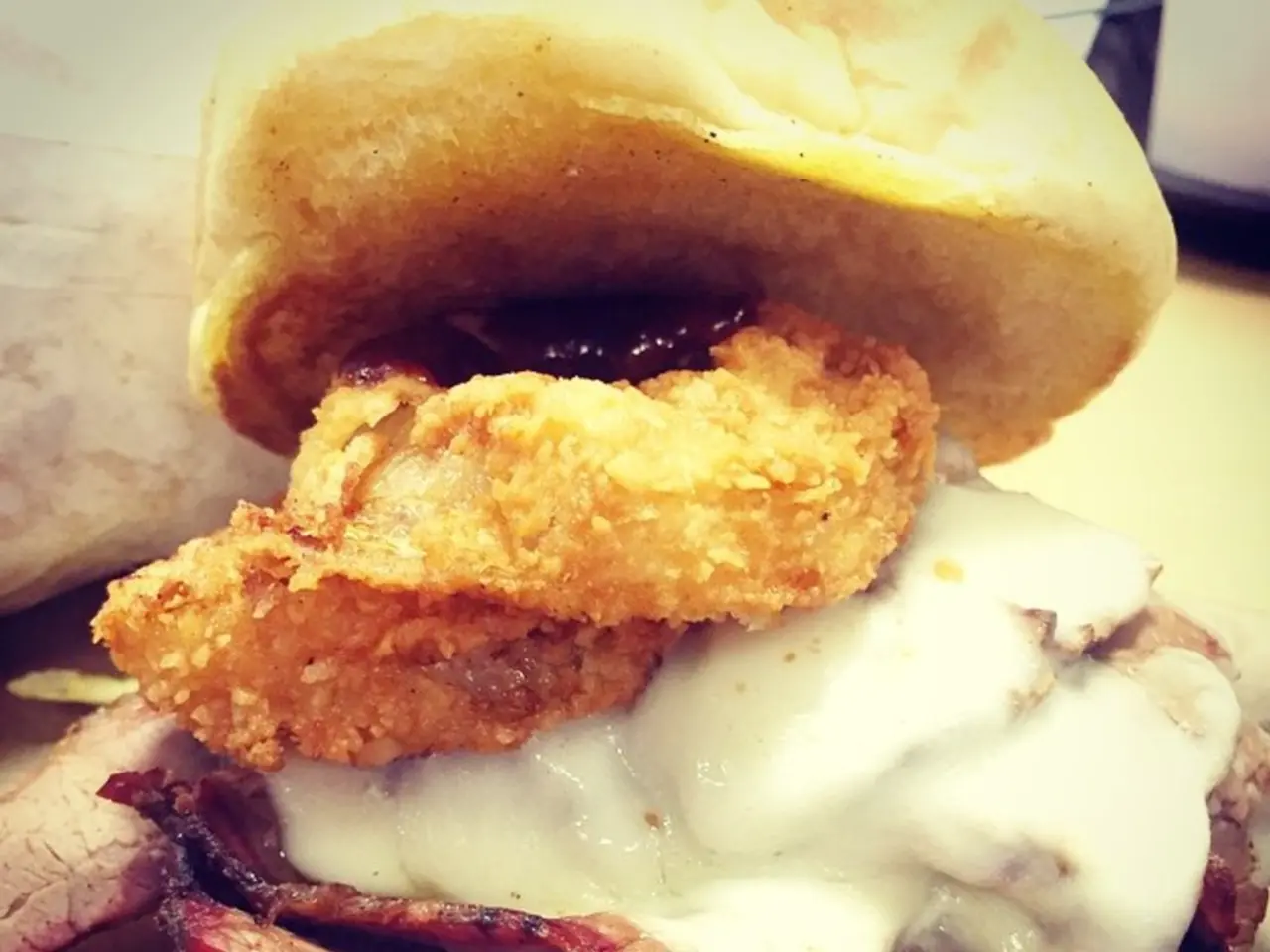Gastroesophageal Reflux Disease (GERD) without Esophagitis: Insight, Symptoms, and Detail
Gastroesophageal Reflux Disease (GERD) is a common digestive disorder that affects many people, particularly in the United States. One subtype of GERD is Non-Erosive Reflux Disease (NERD), characterised by typical reflux symptoms without visible esophageal mucosal injury (esophagitis) on endoscopy.
Common Symptoms of NERD
Symptoms of NERD can include heartburn, acid regurgitation, chest discomfort, and esophageal pain or hypersensitivity. Some patients may also experience cough, throat clearing, and hoarseness. These symptoms can overlap with typical GERD presentations but are present without mucosal damage [2][4].
Causes of NERD
The primary cause of NERD is the dysfunction of the Lower Esophageal Sphincter (LES), which allows gastric contents to reflux. Other contributing factors include visceral hypersensitivity, altered esophageal motility, microbiota dysbiosis, immune responses, and psychological factors like anxiety and stress. Dietary triggers such as spicy, fatty, acidic foods, caffeine, alcohol, and habits like lying down soon after eating can also exacerbate symptoms [2][3][4].
Treatments for NERD
Lifestyle Changes
Lifestyle modifications are often the first-line treatment for NERD. This may involve avoiding trigger foods, losing weight if overweight, elevating the head of the bed while sleeping, not lying down for 2-3 hours after meals, and stopping smoking and avoiding tight clothing at the waist [1][3][5].
Medications
Medications can provide symptom relief for NERD. Antacids, H2 receptor blockers, and proton pump inhibitors (PPIs) are commonly used. Prokinetics are also used to improve LES tone and gastric emptying. Some evidence supports the use of probiotics to modulate gut microbiota, potentially improving symptoms [1][2][3].
Surgery
In refractory cases not responsive to medical and lifestyle interventions, surgical options such as Nissen fundoplication or other anti-reflux surgeries may be considered to tighten the LES and prevent reflux [1][3].
Additional Approaches
Psychological support and treatments targeting esophageal hypersensitivity and CNS modulation may improve symptoms. Dietary counseling and complementary therapies like acupuncture or transcutaneous electrical acustimulation (TEA) have some supportive evidence [2].
Managing GERD Without Esophagitis
Doctors may advise against smoking and drinking alcohol to manage GERD without esophagitis. They may also recommend losing weight if a person currently has overweight or obesity. If someone uses over-the-counter products for heartburn two or more times per week, they should consult a doctor who can advise them about other treatments [1].
Doctors may advise against lying down for at least 2 hours after eating and not eating for at least 2 hours before going to bed. They may also recommend raising the head 6-10 inches off the bed using a foam wedge [1].
In some cases, doctors may prescribe H2 receptor antagonists and PPIs to treat GERD. However, the effectiveness of PPIs in people with GERD without esophagitis can be variable due to the pain-hypersensitivity component [1].
Summary
In managing GERD without esophagitis, the focus is heavily on lifestyle modifications and symptom control with medications. The goal is to improve quality of life since mucosal healing is not a primary goal due to the lack of esophagitis.
Here is a summary table of the key details:
| Category | Details | |--------------------|-----------------------------------------------| | Symptoms | Heartburn, acid regurgitation, chest discomfort, esophageal pain, cough, hoarseness | | Causes | LES dysfunction, visceral hypersensitivity, altered motility, microbiota imbalance, psychological factors | | Lifestyle Changes | Avoid trigger foods, weight loss, elevate head during sleep, no lying down post meals, quit smoking | | Medications | Antacids, H2 blockers, PPIs, prokinetics, probiotics | | Surgery | Nissen fundoplication for refractory cases | | Additional Support | Psychological therapy, dietary counseling, complementary therapies |
If you think you have GERD, it is essential to speak with a healthcare professional. They can identify the underlying cause of your symptoms and monitor your health if necessary. Changes to your diet and eating habits, with a doctor's guidance, can also help manage GERD without esophagitis.
- The primary cause of Non-Erosive Reflux Disease (NERD) is the dysfunction of the Lower Esophageal Sphincter (LES), which allows gastric contents to reflux.
- Some common symptoms of NERD include heartburn, acid regurgitation, chest discomfort, esophageal pain or hypersensitivity, cough, throat clearing, and hoarseness.
- In managing GERD without esophagitis, the focus is heavily on lifestyle modifications and symptom control with medications.
- Lifestyle modifications for NERD may involve avoiding trigger foods, losing weight if overweight, elevating the head of the bed while sleeping, not lying down for 2-3 hours after meals, and quitting smoking.
- Medications can provide symptom relief for NERD and may include antacids, H2 receptor blockers, proton pump inhibitors (PPIs), prokinetics, and probiotics.
- If someone with GERD uses over-the-counter products for heartburn two or more times per week, they should consult a doctor to discuss other treatment options and monitor their health.




